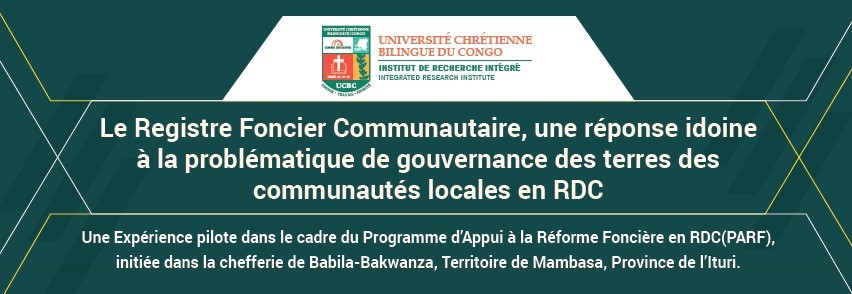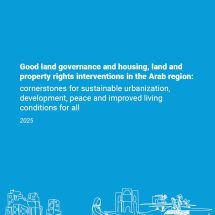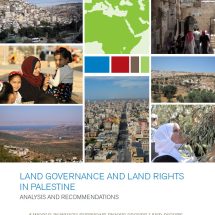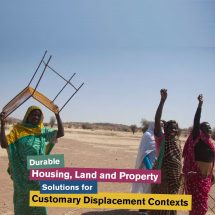Depuis 2012, la RDC s’est engagée dans un processus de réforme foncière. Ce processus est financé par l’Initiative pour les forêts de l’Afrique centrale (CAFI) à travers le FONAREDD (Fond National REDD+). Ce programme vise à élaborer une politique foncière nationale en RDC et y compris l’expérimentation des nouveaux mécanismes de sécurisation des droits fonciers des communautés locales par la mise en place d’un Registre Foncier Communautaire, entendu comme un Système d’Informations Foncières simplifié adapté au contexte local.
La sécurisation des droits fonciers des communautés locales a fait l’objet d’un projet pilote utilisant les outils et les approches du Réseau mondial d’outils fonciers (GLTN) pour sécuriser les droits fonciers des communautés locales en Ituri (Mambasa) et à Maindombe (Inongo). Le nouveau mécanisme, appelé Registre Foncier Communautaire (RFC), suit l’approche et les concepts de la Gestion Foncière Adaptée au Contexte (FFP-LA) et Le Modèle Du (domaine de la) Tenure Sociale (STDM) du GLTN.
Ce document résume la manière dont les outils de GLTN ont été utilisés dans le contexte de la RDC afin d’apporter des réformes dans les cadres spatiaux, institutionnels et juridiques de la gestion foncière locale. De plus ce document montre comment les outils de GLTN ont conduit à la cartographie participative des terres communautaires, à l’enregistrement et à la délivrance des actes fonciers et à l’identification et à la résolution des conflits fonciers à travers les mécanismes alternatifs de résolution des conflits. Le document n’est accessible qu’en français.
The Community Land Registry, an appropriate response to the problem of land governance for local communities in the DRC
Since 2012, the DRC has been engaged in the land reform process. This process is financed by the Central African Forest Initiative (CAFI) through FONAREDD (National REDD+ Fund). This program aims to develop a national land policy in the DRC and to test new mechanisms for securing the land rights of local communities through the establishment of a Community Land Registry, understood as a simplified Land Information System adapted to the local context.
Securing the land rights of local communities has been piloted using GLTN tools and approaches for securing the land rights of local communities in Ituri (Mambasa) and Maindombe (Inongo). The new mechanism called, the Community Land Registry or CLR, follows the approach and concepts of the Global Land Tool Network’s Fit-For-Purpose Land Administration (FFP-LA) and the Social Tenure Domain Model (STDM).
This paper summarizes how GLTN tools have been used in the DRC context to bring about reforms in the spatial, institutional, and legal frameworks of local land management. In addition, this paper shows how the GLTN tools have led to participatory mapping of community lands, registration and issuance of land acts, and identification and resolution of land conflicts through alternative dispute resolution mechanisms. The document is only accessible in French.












